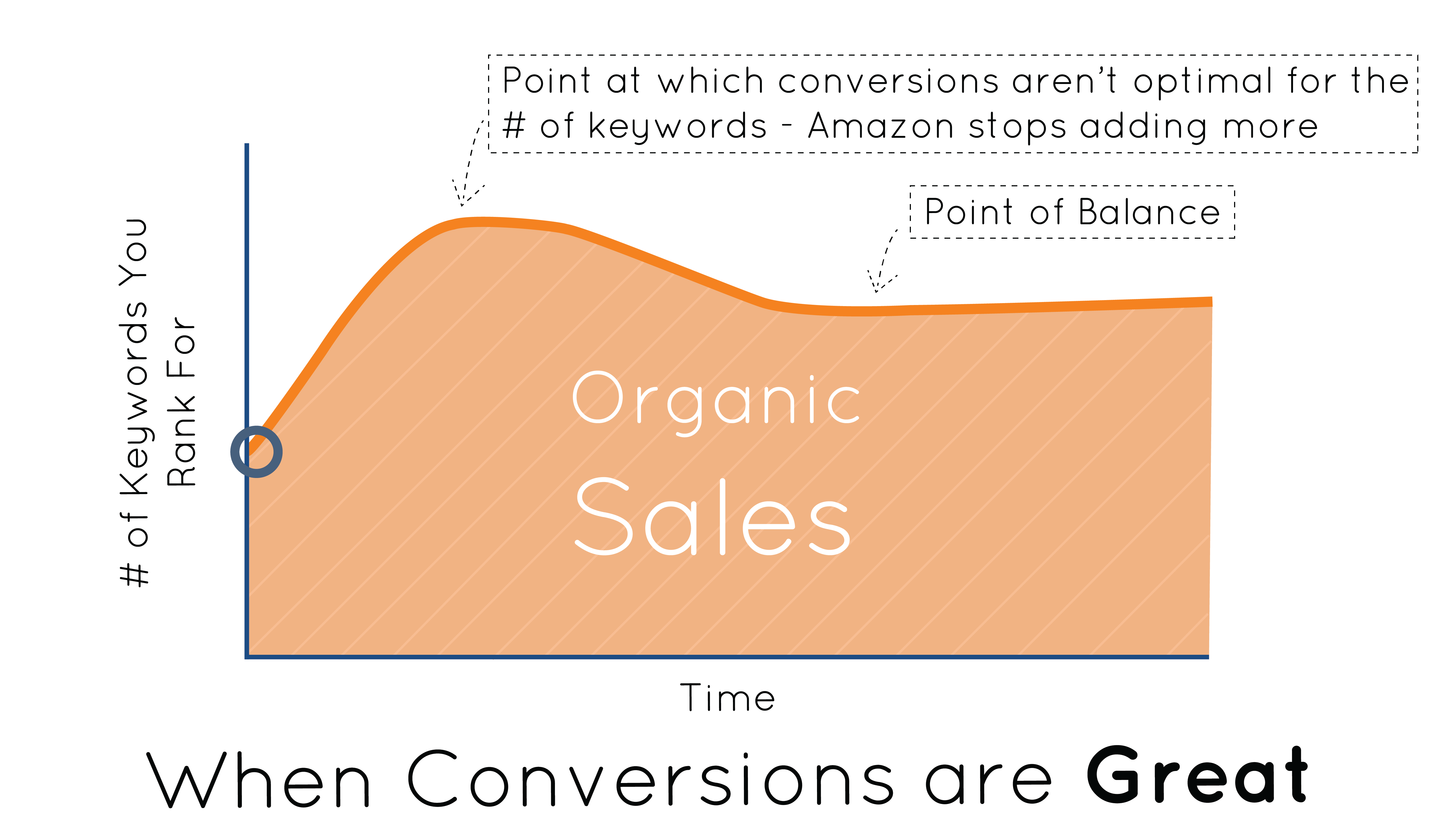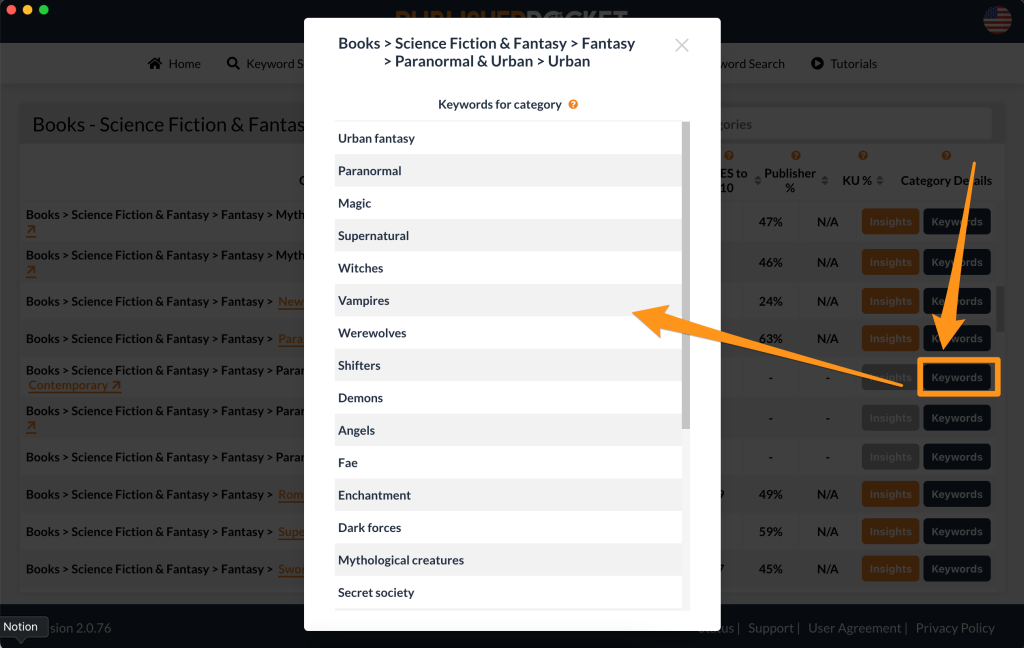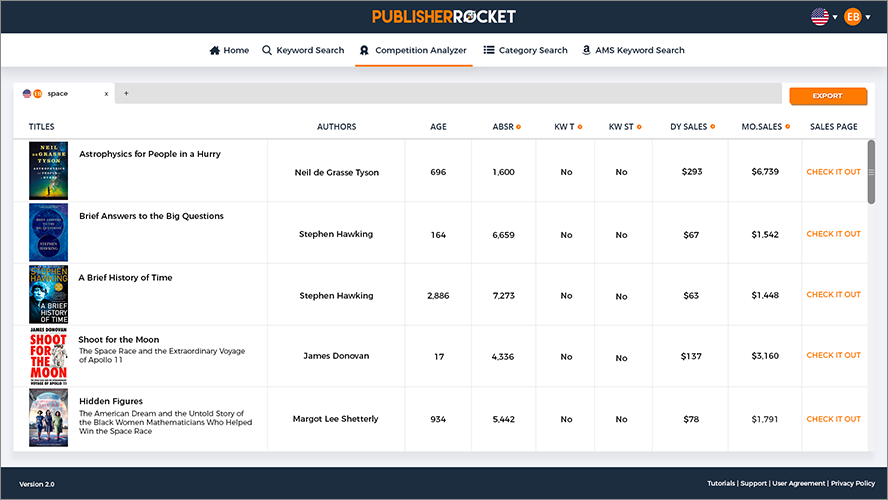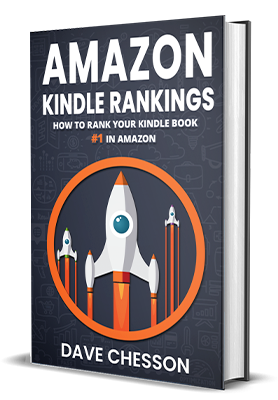Did you know you can change your book’s keywords anytime you want?
In fact, it usually takes Amazon just 24 hours to reflect changes you make, and with the right keyword strategy, this can revive a book that hasn’t been getting consistent sales.
But, in order to do this effectively, you need to have a reliable process. There is actually a best-practice for how and when to change your book’s keywords. And if you don't follow it, you might accidentally hurt your book sales.
- What happens when you change keywords
- My process for how to change your keywords effectively
- Step-by-step instructions for actually changing your keywords
Table of contents
However, before we get into changing keywords, I think it’s really important that we first talk about how keywords work and how Amazon uses them. This, in turn, will help you to fully understand why this keyword changing strategy was built.
With that, let’s get to it!
What Happens When You Select Keywords
So, first things first, let’s discuss what happens when you select keywords for your book.
When you fill in your 7 kindle keyword boxes, you tell Amazon what words or phrases you want your book to show up for.

Based on the experiment we performed in this article, using hundreds of books, we discovered the following:
- Amazon uses all the different combinations of words in each box to create more keyword phrases for your book to show up for.
- However, the more specific your actual phrase, normally the higher the initial rank you get.
- Amazon also automatically creates pluralizations of the words and phrases in each box.
- Words in the title and subtitle carry more weight than in the keyword box.
Based on this, I was able to create a video that shows you how to get the best out of those 7 KDP boxes. Using the information above and some more about category systems and such, if you follow this process, you can definitely show up for more keywords and rank better.
So, as an example, you may have entered a total of 17 words in these boxes. But using the different combinations and pluralizations, Amazon may index you for 210 phrases and words initially, and at different rankings for each.
So, if you follow the steps in the video, you will really set up your book for the best beginning.
But this is just the start. You see, when you publish your book, Amazon will start you with those 210 phrases (just keeping with the example above) and then will test your book over time to see if your book deserves to show up for those keyword phrases.
They want to know if your book converts well enough for those phrases because, after all, Amazon is all about those sales, right? If your book converts well, then Amazon will not only rank your book higher for those phrases, they will also start indexing your book for even more phrases and words. They will keep doing this until they finally see a point where there is diminishing returns and the book will sit until it otherwise proves different. Basically, they reward your book by showing it in more keywords.
Here is an example of what that looks like when your book converts well for those keywords:

However, if your book shows that it doesn’t convert well for those keywords and shoppers keep passing it by, your book’s rankings will decrease.

So, what makes a book fail at converting for keywords? Well, here are a few things:
- Poor cover
- Poorly written book description
- Cover + title + subtitle doesn’t tell the shopper enough about the book
- Poor reviews
- Ranking for keywords that are not a good representation of your book
- Choosing broad keywords that don’t truly fit
So, what does this mean for you?
If you select your keywords, and your book does well with them, Amazon will rank you for more and will help show up more often. If your book doesn’t do well, then your book’s ranking for those keywords will drop and ultimately, your book will disappear from those searches on Amazon.
So, what can we learn from this for changing our keywords?
So, When Should You Change Your Keywords?
If you haven’t made any sales or KU page reads, then you should change them and see if that can help get you back in the spotlight. I’d also recommend looking at the bullet points above and asking yourself why your original strategy didn't work. Was it because you used the wrong keywords or phrases that didn’t fit or get traffic? Was it because your book needs improvements? Diagnosing the problem can definitely help.
However, if you have a book that is doing well and getting organic sales, you still should think about changing them. Out of the 7 boxes, it might be one or two of them that are actually helping you the most while others are underperforming. Therefore, using the strategy I detail below, you can improve your optimization and grow your sales.
What Strategy Should You Use to Change?
Because, like I said above, there may be a keyword phrase or keyword box that is actually helping you beyond its original meaning.
That keyword phrase may have set Amazon on a path to show your book for other phrases that have been a major driving force for your organic sales.
Therefore, my general rule of thumb for changing keywords is to not change them all at the same time, but instead change only a couple at a time.
Here’s what you should do:
- Change your keywords in two of the boxes at a time.
- Save the two original keywords that were in the box in a separate sheet in case you need them later.
- Wait 5-7 days after changing your keywords to see whether you have an uptick in sales or not.
- If your sales go down, then put the original two back in and mark that those had an important effect. Then move on to another two boxes.
- If your sales go up, then mark those as beneficial keywords, and move on to another two boxes.
- Check to ensure you're in the same categories – this is because your keywords can affect which categories Amazon has you even (even if you selected certain ones in KDP). To check, you can use a tool like this one or if you have Publisher Rocket, you can use that.
Also, when picking keywords, you should try using Rocket's new Category Keyword feature. Our system looks at some of the top category specific keywords books have used, and will show you. All you need to do is find your category or a potential category in the category feature, then click the “Keywords” button.

You'll see a list of great keywords to check out – these are not only good keywords, but these keywords have been seen as strong indicators to Amazon that you should be in that category.
But what happens now? What if you don’t see any sustained sales? Well, that's where my secret strategy comes in.
A Case Study: T.S. Paul Changing Keywords
A lot of times when you change your keywords you will see a bump in sales. The bump in sales happens because there’s some new life Amazon picks up on. They reindex you and they kind of give you a little bit more love just to see if you should be higher in the rankings.
So a lot of authors will change their keywords, and they’ll see a spike–a couple book sales or even 50+ depending on where you are in your author career. This spike is great, but you want to give it enough time to see where it actually settles. Because Amazon might have put you up there near the top but you only sold five books and the book below you was selling seven, so you’re naturally going to fall to where you should be.
So you want to give it enough time to see where you end up.
A great example of using this method well is how author T.S. Paul used it with his science-fiction books. As one of the first adopters of Publisher Rocket, he changed out his keywords and saw a massive bump in sales. In fact, it was a game-changer for him–and that’s part of the reason I had him on the podcast.
Take a listen below.



So you see, with the right keywords and strategy, you might end up selling more books and even becoming a bestseller.
Step-By-Step: How to Change Your Keywords
In case you don’t know how you can change your keywords, here is a step-by-step process for you:
Kindle keywords are the seven keywords you choose when you first upload your book in your KDP dashboard. You’ll find seven boxes below the “Publishing Rights” section as follows:

It says optional in brackets next to “Your Keywords,” but if you want your books to be indexed and to be found by potential readers, you absolutely must fill in this section!
Here’s a step-by-step guide on changing your keywords:
- Navigate to your dashboard here.
- Enter your login in details and ensure you are on the Bookshelf tab.

- Hover over the three dots next to your book and hit “Edit eBook details”.

- Scroll down to the seven kindle keyword boxes and change your keywords.
- Hit “Save and Continue” and then “Publish” once you reach your pricing page.
As I mentioned before, it will take about 24 hours for Amazon to change your keywords. After that, you’ll start seeing differences in how many books you sell, either more or less. Obviously, you’re aiming for more than less, right? And as I've mentioned, if the results aren't positive, you can change your keywords back to what they were before or try different keyword combinations.
My Recommendation for Changing Your Keywords
Changing your keywords is a process that you can do whenever you want, and if done right, it can either spark new life into your book’s sales or improve its already solid stance.
It can also provide you with valuable information on which keyword phrases helped to move the needle. This can improve your next book’s sales, whether in a series or just in the same genre or niche.
So, if you do decide to change your keywords, make sure to use the above process to systematically track and understand which keyword phrases move the needle for your book sales.
Cheers!
More Keywords and Categories:
If you're interested in more articles like this one, check out our hubs for how to choose the best keywords and categories, as well as our overview of Publisher Rocket.




What is the Formula for –“choosing the right or best Keywords”. What are some examples of this Choosing process?
Do you use words from the title and or subtitle? Or do you use “Trigger words” such as –Free –Buy Now—Will not last long?
These two articles will answer those questions: https://kindlepreneur.com/how-to-choose-kindle-keywords/ and https://kindlepreneur.com/7-kindle-keywords/
Do we need to try those phrases we use in that 7 boxes by Amazon search before. Sometimes there is no result so I feel hesitate to use them.
Thanks.
Yes, OR if you have Publisher Rocket, then you’ll know if those terms get searched for and by how many people.
Awesome! Big thanks!
Glad to have helped!
Hey Dave, thanks. This is a great systematic way of testing the keywords. I usually change all the keywords at the same time and have no idea which one works better. Also, using “3 to 4 of your best-proven keyword boxes on the other books in the series” is a good suggestion. I’ll try it. Thank you!
Awesome and glad to have helped!
Excellent tips! I’m going to try them right now! Fingers crossed!
Awesome and sounds good